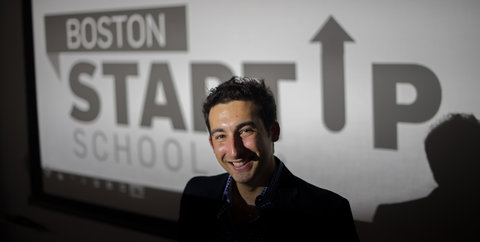Ward Platt is president for Asia-Pacfic and the Middle East at Fox International Channels, a unit of News Corp.
Q. Do you remember the first time you moved abroad professionally?
A. In 1994 I was working for a cable television company in Boston, and they were doing a joint venture in Singapore. I asked whether there was an opportunity to be involved. After not hearing back for several weeks, one day the general manager of the joint venture called up and offered me a job, but I was told I only had 24 hours to make up my mind.
I had never been to Asia; nevertheless, I took a leap of faith and packed my bags.
Q. What do you remember of those early days?
A. It was less of a culture shock than I expected, without really knowing what to expect. Singapore was already pretty vibrant and I suppose I found it somewhat exhilarating. It was pretty clear upon arrival there were going to be a lot of opportunities in Asia.
Q. Had you been a manager before?
A. Not really. This was really the first managerial opportunity.
Q. How steep was the learning curve?
A. I don’t think I was a very good manager when I started. I made plenty of mistakes during those early days. Over time I learned to manage more than one country —at Fox we’re in over 14 markets. The styles of doing business, managing people and leading teams can be dramatically different between the various markets. At least when you go to Latin America there are some similarities between the countries, there are only two languages and there is a Latin culture, but Asia is far from a single culture and there are far fewer similarities from one country to the next.
Q. What were some of those early mistakes?
A. I guess pretty typical: being a rash American, and maybe less sensitive to the cultural issues. It’s hard to pinpoint, but certain aspects of communication. For certain things Asians can be incredibly direct, even more so than Americans, but for others, they are far more reserved.
Q. What have you learned managing across cultures?
A. I’m not particularly good at foreign languages, although I’ve learned a bit of Japanese and Mandarin. But I’ve invested my energy in trying to learn the cultures of the countries and the different nuances between them. For instance, some people think Japan and Korea are alike, but in reality they’re almost at the opposite ends of the spectrum in terms of how local executives think about and go about business.
Q. Can you give an example?
A. In Korea, I find our team and the business people we interact with to be very intense about doing business, incredibly hard-working and committed to the cause on a daily basis. The Japanese are equally successful and committed, but they try hard to find the consensus before moving forward. As a result, they come across less aggressive day to day, even if they are committed over the long haul to getting to the goal line.
Q. Your company has focused on decentralizing power and finding local managers. How do you find that this works?
A. In the early days we didn’t have a lot of money or resources, so some of this was made out of necessity. It was less expensive to hire someone locally based than bring someone over from the U.S. or Europe.
But soon we realized that if we found locally based talent with the right skills and mind-set and who were hard-working, and we gave them a real sense of ownership over the business, that they could move at a much faster speed than even a very talented expatriate.
In the media industry, many still believe they’re building a regional business, but we don’t see it like that. We’re building local businesses. Culturally and business-wise it’s hard to get people up to speed quickly. It doesn’t mean we don’t bring expats in, but they have usually already lived in Asia.
Q. So what qualities are you looking for when you are hiring?
A. We’re looking for people who can build and lead the organization, as we’re still in the development stage. It’s about inspiring a strong level of performance and instilling positive values. You need genuine people with a strong grounding.
I’ve been involved in a lot of hiring, directly or indirectly, and I’ve been fortunate to be surrounded by talented people who can do the same. So you have a multiplying effect.
Q. What have you learned over the years in terms of leadership?
A. I’m a very hands-on person, but it’s impossible in my role to be hands-on completely every day. What I’ve learned is that it’s better to come in and focus fully on one thing, whether for half a day or a day, than try to juggle 50 balls. It’s more efficient to be that way.
I also like to encourage direct interaction between different parts of the business. If you have a great team in Malaysia and a great team in Taiwan, you should encourage direct interaction between these teams, instead of coming through a central clearinghouse.
Article source: http://www.nytimes.com/2012/12/24/business/global/24iht-manager24.html?partner=rss&emc=rss
